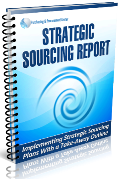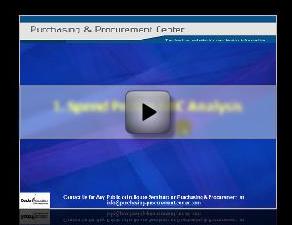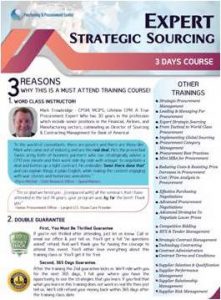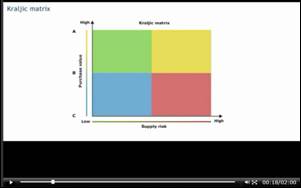5 Common Types of Procurement Fraud You Should be Aware of
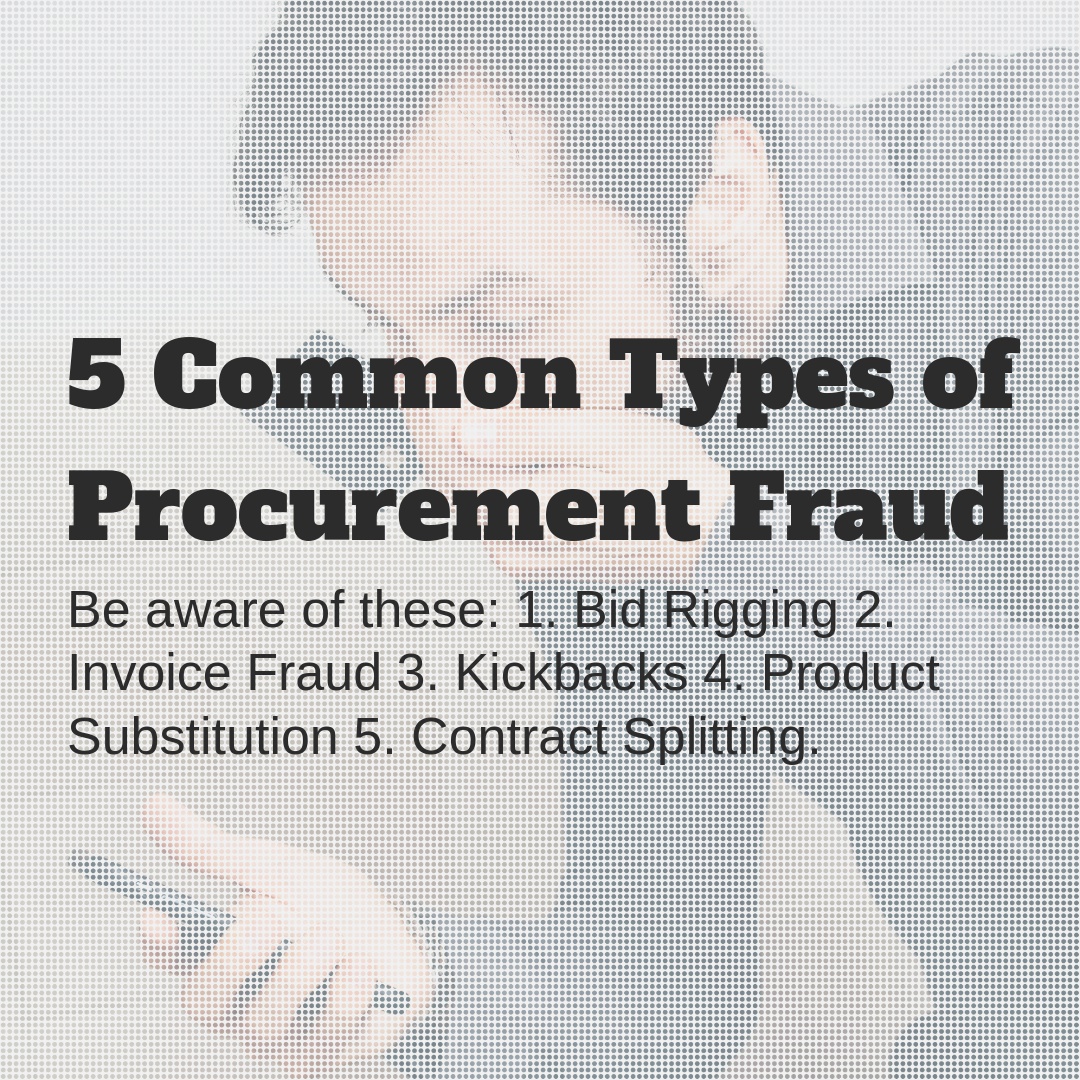
Fraud in procurement happens when individuals manipulate the process of purchasing goods or services for personal financial gain.
This can result in your company overpaying for goods, receiving poor-quality products, or being deceived by dishonest vendors.
Understanding the different types of procurement fraud is crucial to safeguarding your business from these risks.
Check Out: Practical & Real-Life Procurement Training Courses
1. Bid Rigging
Bid rigging is a common type of fraud in procurement where vendors collaborate to manipulate the bidding process. Instead of competing fairly, they agree on who will win the contract, often by submitting similar bids, withdrawing bids, or alternating wins between vendors. This eliminates genuine competition and drives up prices.
How to Spot Bid Rigging:
By rotating the people responsible for managing bids, you reduce the chance of long-term relationships between vendors and staff, limiting opportunities for collusion.
- Frequent Winning by the Same Vendors: If certain vendors seem to always win contracts, this may be a red flag.
- Identical Bids: When the bid amounts from different vendors are unusually similar, it could indicate collusion.
- Sudden Withdrawal of Bidders: If one or more vendors withdraw their bids unexpectedly, allowing a specific vendor to win, this could signal bid rigging.
How to Prevent Bid Rigging:Rotate Procurement Staff:
- Increase Vendor Participation: Encourage more vendors to submit bids to create real competition.
- Use Technology: Implement procurement software that tracks and analyzes bidding patterns for signs of manipulation.
2. Invoice Fraud
Invoice fraud occurs when a supplier submits a false or inflated invoice. This can happen if a company charges for products or services it didn’t deliver or sends the same bill twice for the same order.
How to Spot Invoice Fraud:
- Inconsistent Details: Check for discrepancies between purchase orders, invoices, and delivery records.
- Repeated Invoices: Be cautious of receiving the same invoice multiple times.
- Unexplained High Charges: Unusually high charges for routine goods or services could signal inflated invoices.
How to Prevent Invoice Fraud:
- Match Invoices to Purchase Orders: Always ensure that invoices are matched to purchase orders and delivery receipts before payment is made.
- Use Automation: Leverage software to automate the process of checking invoices and identifying discrepancies.
- Conduct Regular Audits: Perform frequent audits to catch potential fraud early and ensure that invoices align with services rendered.
Check Out: The 7 Core Purchasing Strategies!
3. Kickbacks
Kickbacks involve a procurement employee receiving personal rewards, like money or gifts, from a vendor in return for giving them a contract. This can result in overpayment or the purchase of lower-quality products, all while harming your company’s financial health.
How to Spot Kickbacks:
- Unjustified Favoritism: If certain vendors seem to be consistently favored without clear business justification, it could be a sign of kickbacks.
- Close Relationships Between Employees and Vendors: Keep an eye on procurement staff who seem too close to certain suppliers.
- Unexplained Contract Modifications: Unexpected changes to contracts or terms without clear explanations may suggest that a kickback is involved.
How to Prevent Kickbacks:
- Implement Ethical Guidelines: Create clear and strict ethical rules for both employees and vendors involved in procurement.
- Document Procurement Decisions: Make sure all procurement decisions are properly recorded and open for review.
- Rotate Staff: Regularly rotate procurement staff to prevent long-standing relationships between employees and vendors, which can foster kickbacks.
- Conduct Reviews: Regularly review vendor relationships and procurement contracts to identify potential conflicts of interest.
4. False Claims
False claims are a type of fraud in procurement where vendors submit exaggerated or entirely fake compensation claims. This might involve claiming damages that didn’t occur or billing for work that was never completed.
How to Spot False Claims:
- Lack of Supporting Documents: Ensure that all claims are accompanied by appropriate supporting documentation.
- Frequent Claims from the Same Vendor: Multiple claims from the same vendor over a short period may warrant closer inspection.
- Claims Beyond the Scope: Claims that don’t align with the scope of the work outlined in the contract are a red flag.
How to Prevent False Claims:
- Demand Detailed Documentation: Require vendors to submit detailed, itemized documentation for all claims.
- Audit Claims: Regularly audit claims to verify their accuracy and legitimacy.
- Encourage Whistleblowing: Implement a whistleblower policy that encourages employees to report suspicious activities without fear of retaliation.
Read More: 7 Best Procurement Practices
5. Product Substitution
Product substitution happens when a supplier delivers poor-quality items than agreed, but still charges for the higher-quality ones listed in the contract. This kind of fraud can harm your business, especially if the replaced products are poor quality or faulty.
How to Spot Product Substitution:
- Quality Issues: Check the quality of the goods you receive regularly and make sure they match what was agreed on in the contract.
- Frequent Product Failures: If products break down or fail more often than expected, this could be a sign of product substitution.
- Non-Matching Documentation: Check if the products received match the description and certifications outlined in the contract.
How to Prevent Product Substitution:
- Implement Quality Control Measures: Establish strict quality control protocols to regularly check the products you receive.
- Random Inspections: Do random checks on the goods delivered by vendors to make sure they meet the contract requirements.
- Evaluate Suppliers: Regularly evaluate your suppliers to ensure they consistently meet the quality standards expected.
How Procurement Fraud Impacts Your Business
Fraud in procurement can have long-lasting consequences for your business. The most immediate impact is financial loss due to overpaying for goods or services or dealing with damaged goods.
Procurement fraud also harms your supplier relationships, making it difficult to trust vendors in the future. Operational inefficiencies caused by product substitution or delayed services can also damage your reputation and lead to lost business opportunities.
Check Out: Fraud in Procurement: Detection & Prevention Express* White Paper!
The Role of Technology in Preventing Common Types of Procurement Fraud
Technology is a powerful tool in combating fraud in procurement. Automated systems can monitor bids, verify invoices, and track supplier performance, making it easier to spot irregularities.
Artificial intelligence and data analytics can also help identify unusual behavior patterns that might otherwise go unnoticed, such as frequent small invoices or repeated wins by the same vendor.
Investing in the right technology can make your procurement process more efficient and reduce the risk of fraud. By automating tasks like invoice verification and bid tracking, your team can focus on strategic procurement activities that help grow your business.
Become a Certified Procurement Expert!
For top procurement executives looking to enhance their skills and prevent fraud in procurement, consider enrolling into the CIPM Procurement Certification.
This program offers advanced training on procurement strategies, fraud prevention, and procurement management. You can learn more and sign up here!
Q1. How can I detect fraud in procurement early?
Q1. How can I detect fraud in procurement early?
Early detection of procurement fraud requires regular audits, monitoring vendor relationships, and using technology to track bidding and invoicing patterns. Look for unusual behavior such as repeated wins by the same vendor or inconsistent pricing.
Q2. What is the most common type of fraud in procurement?
Q2. What is the most common type of fraud in procurement?
Bid rigging and invoice fraud are two of the most common forms of procurement fraud. Both involve manipulating the procurement process for financial gain and can result in overpayment and operational inefficiencies.
Q3. How can my company prevent fraud in procurement?
Q3. How can my company prevent fraud in procurement?
Preventing procurement fraud requires a combination of strong internal controls, employee training, and technology. Rotating procurement staff, auditing supplier relationships, and automating processes are effective ways to reduce fraud risk.
Q4. How does procurement fraud affect business operations?
Q4. How does procurement fraud affect business operations?
Procurement fraud can lead to significant financial losses, damaged supplier relationships, and inefficiencies in operations. Over time, it can also hurt your company’s reputation, making it harder to attract trustworthy vendors and clients.
Written by Lindsay Chesar (Education Director), Edited by Artin Viqari (CEO Purchasing & Procurement Center), Updated by Azmi Anees







